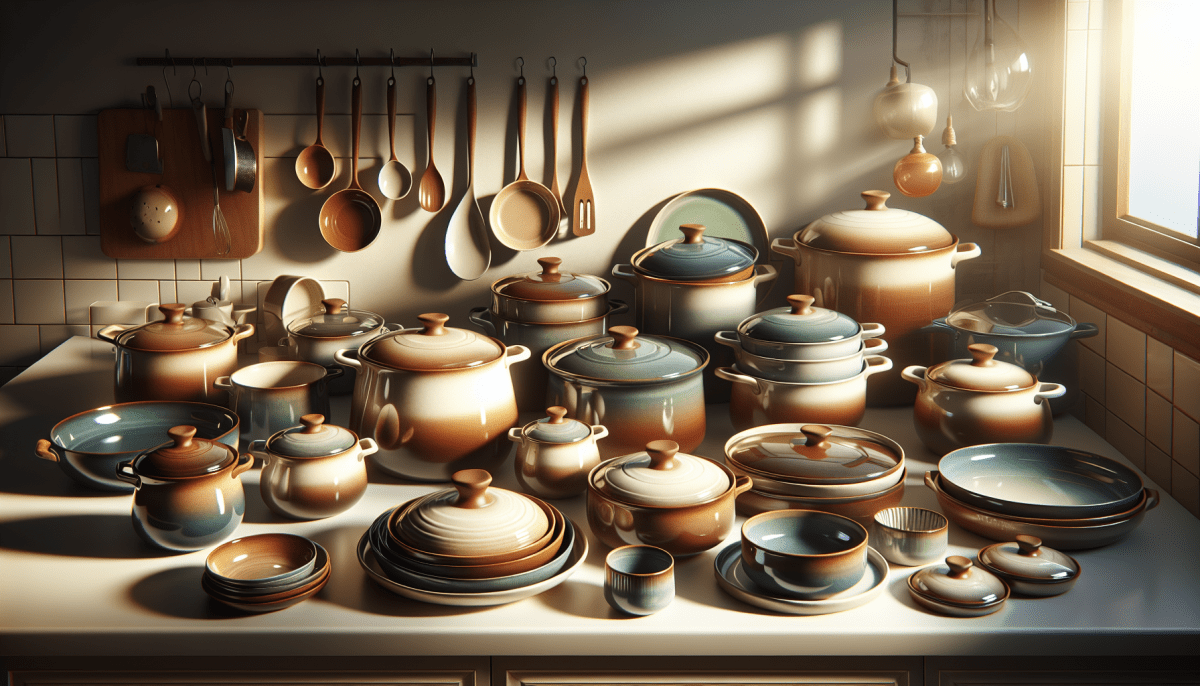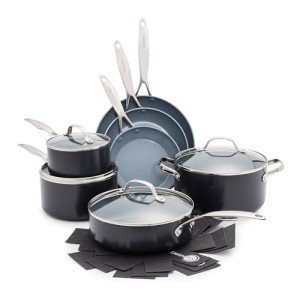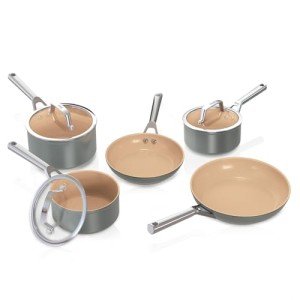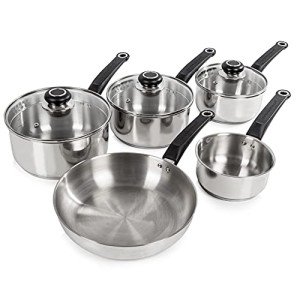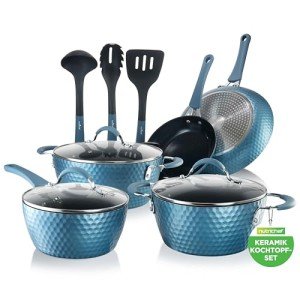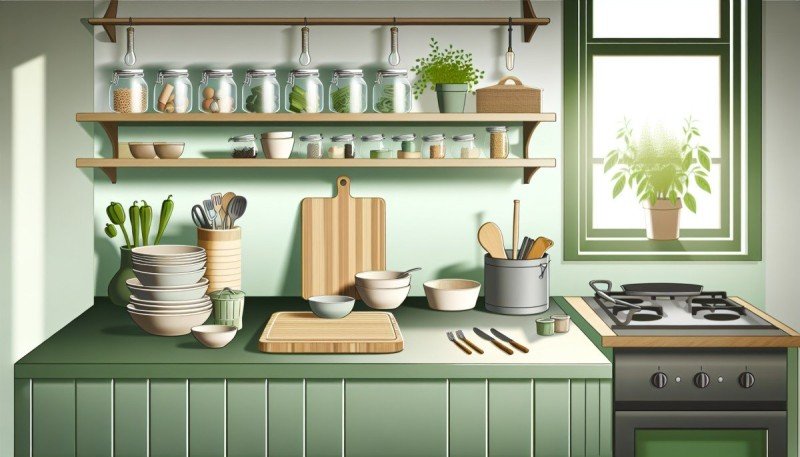Advantages of Ceramic Cookware
A key advantage of ceramic cookware is its ability to distribute heat evenly. This means that your meals will cook more uniformly, resulting in better textures and flavours. Whether you're searing meat or simmering sauces, using ceramic cookware can help you achieve consistent results. It also retains heat well, which can be beneficial when cooking at lower temperatures for extended periods.
In addition to its functional attributes, ceramic cookware is often available in a variety of vibrant colors and designs, adding an aesthetic appeal to your kitchen. This makes it not only practical but also visually inviting. Many people enjoy serving directly from the stove to the table in beautiful ceramic pots and pans, enhancing their dining experience.
And, unlike some other cookware (e.g. cheap cast iron), ceramic cookware does not react with your food. So, you can cook add tomatoes, citrus, vinegar and other acidic foods to your ceramics without worrying that the cookware will spoil your food through metallic contamination or by altering the flavour of your dish.
Finally, ceramic cookware is generally more eco-friendly compared to other alternatives. It is made from natural materials, and many brands emphasise their commitment to sustainability during the production process. This makes ceramic cookware a great choice for those looking to minimise their environmental impact while enjoying high-quality cooking tools.
GREENPAN 11-Piece Ceramic Non-Stick Cookware SetCook with confidence while reducing your environmental impact with this sustainable and versatile cookware collectionProduct information$449.99 $319.99 Product Review Score4.3 out of 5 stars 2061 reviewsProduct links |
NINJA Non-Stick Ceramic Cookware Set, 5-PieceUpgrade your kitchen with this sustainable Ninja Cookware Set that combines eco-friendliness and high performanceProduct information$318.26 Product Review Score4.81 out of 5 stars 33 reviewsProduct links |
Disadvantages of Ceramic Cookware
While ceramic cookware has gained popularity for its aesthetic appeal and non-toxic nature, it does come with some drawbacks that users should be aware of. One significant concern is its durability. Although many ceramic pieces are designed to be chip-resistant, they can still easily crack or shatter if dropped or subjected to sudden temperature changes. Care must be taken to handle ceramic cookware gently, which can be a drawback for those who prefer more durable options.
Another limitation of ceramic cookware is its cooking performance. While it offers excellent heat retention, it can sometimes lead to uneven cooking. Some ceramic cookware heats up quickly, while others may take longer to reach the desired temperature. This inconsistency can affect cooking results, particularly for dishes that require precise heat control.
Additionally, ceramic cookware often comes with a non-stick coating that may wear off over time. While many brands claim their coatings are long-lasting, frequent use of metal utensils can accelerate this wear and potentially expose the underlying material. As a result, users should be careful about the utensils they use and the cleaning methods they choose, which can be perceived as an inconvenience compared to traditional non-stick options.
Finally, ceramic cookware can be more expensive than other types of cookware, such as aluminum or stainless steel. While the investment may be justified for those who prioritize aesthetics and health, budget-conscious cooks may find it challenging to justify the higher price point. This could limit accessibility for some consumers looking to upgrade their kitchenware.
Care Tips for Ceramic Cookware
Taking care of your ceramic cookware is essential to keep it looking great and performing well. One of the first tips is to avoid using metal utensils. While ceramic cookware is quite durable, scratching the surface can compromise its non-stick properties. Instead, opt for wooden or silicone utensils to safeguard your pots and pans.
When cleaning ceramic cookware, always choose gentle cleaning methods. Avoid abrasive sponges and harsh chemicals, as these can damage the ceramic surface. Instead, use a soft sponge and warm soapy water to clean your cookware after each use. For tough stains, a paste of baking soda and water can work wonders without causing harm.
Storing ceramic cookware properly is also important. Stack your pots and pans carefully to prevent chips and scratches. If possible, place a soft cloth or paper towel between each piece to provide extra protection. This small step can significantly extend the life of your ceramic cookware and keep it looking new.
Lastly, be mindful of temperature changes when cooking with ceramic cookware. While many pieces can withstand high heat, sudden changes in temperature can lead to cracking. It’s best to preheat the cookware gradually and avoid placing hot items directly into cold water. By following these care tips, you can enhance the longevity and performance of your ceramic cookware.
Choosing the Right Ceramic Cookware
Another important aspect is the durability of the ceramic cookware. While traditional non-stick pans can scratch easily, many ceramic options are designed to be more resilient. Look for cookware that has a sturdy base and a scratch-resistant surface. This will not only enhance the longevity of your pots and pans but also keep them looking good over time.
Additionally, consider the size and shape of the ceramic cookware. Depending on your cooking habits, you may need various sizes to accommodate different recipes. Whether you're simmering a sauce or baking a casserole, having the right piece of ceramic cookware can make all the difference. Also, ensure that the cookware is compatible with your heat source, as not all ceramic is suitable for induction cooktops.
Finally, think about the ease of cleaning and maintenance. One of the advantages of ceramic cookware is that it is generally easy to clean, often requiring just a gentle wipe with a sponge. However, be mindful of the specific care instructions for the brand you choose, as some may need special attention to keep them in top condition. By keeping these factors in mind, you'll be well on your way to selecting the best ceramic cookware for your kitchen.
